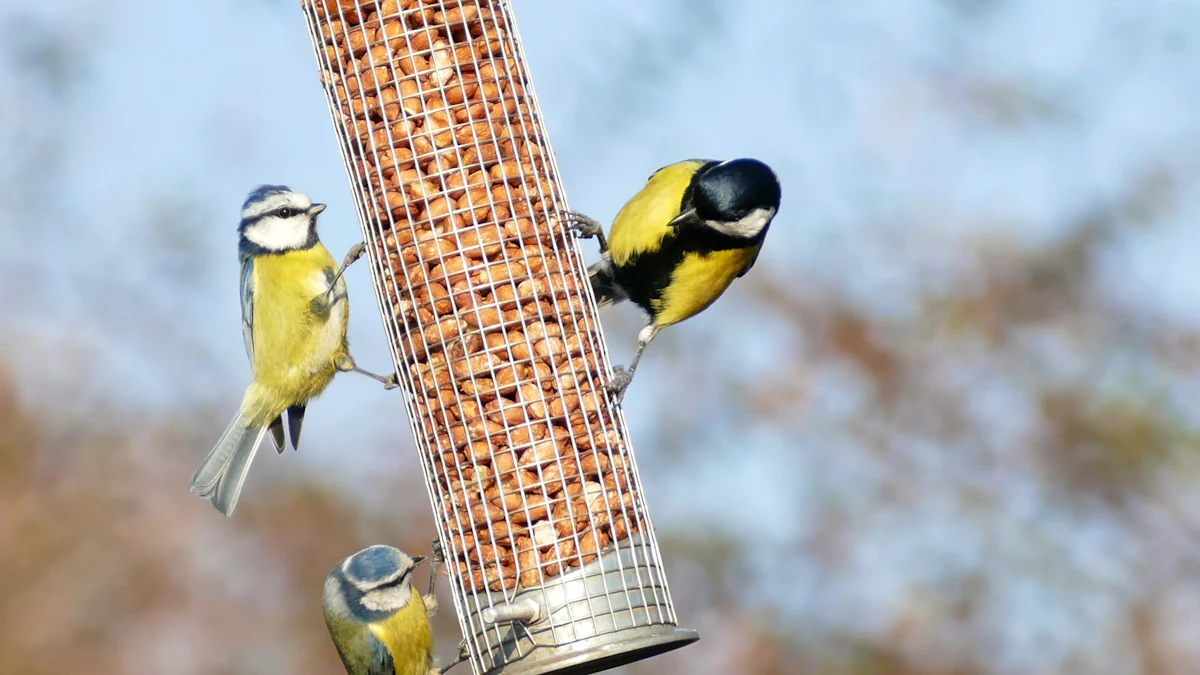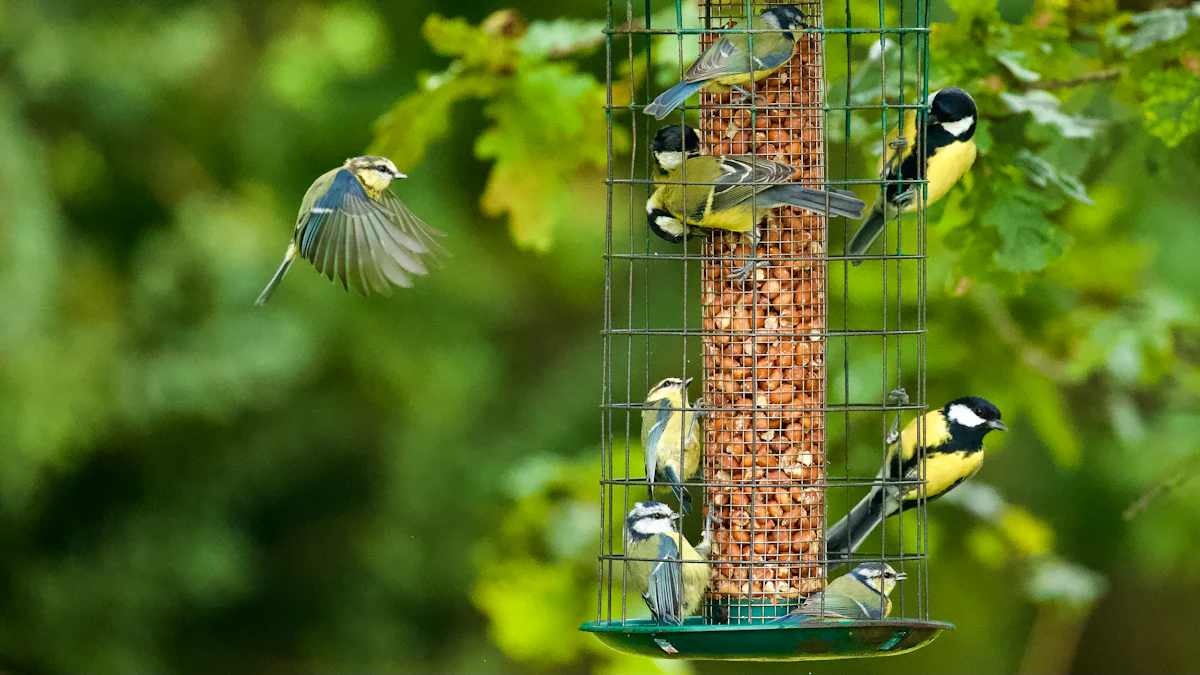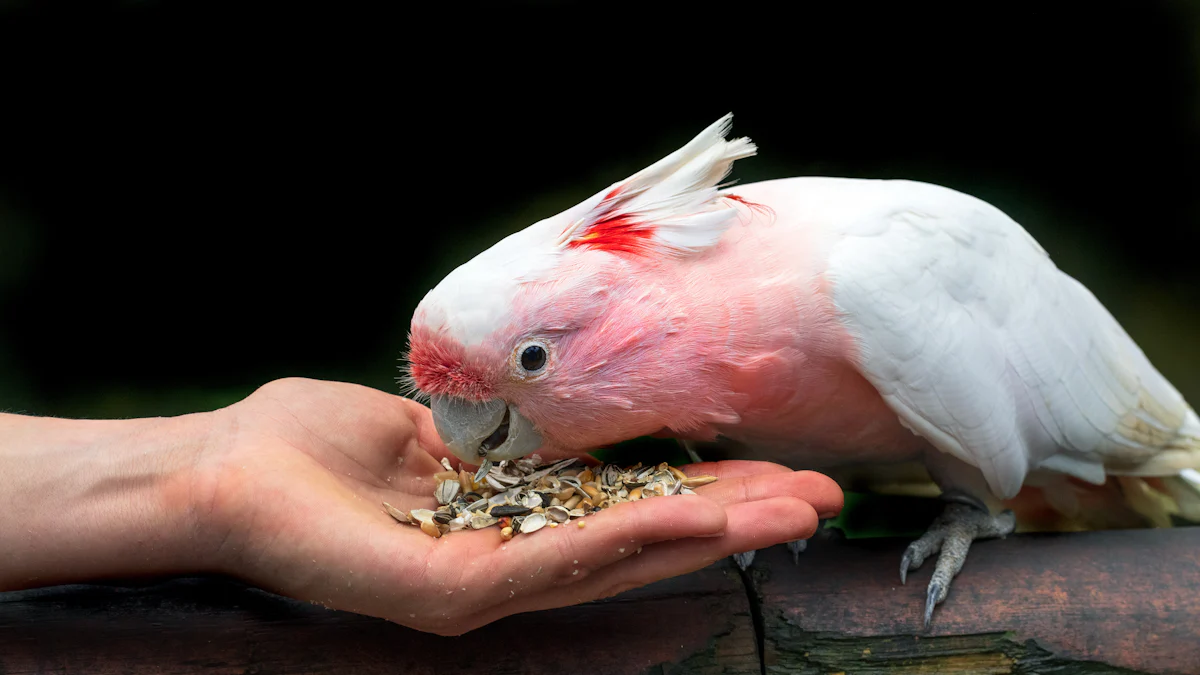
Maintaining fresh bird food is crucial for the health and well-being of birds. Regularly checking and changing bird food ensures that birds receive the necessary nutrients. Fresh food prevents health issues related to stale or spoiled food. Birds on a formulated pellet diet live longer and have fewer health problems. Stale or spoiled bird food can lead to nutritional deficiencies and other health risks.
Nutritional Value
Impact on Bird Health
Birds need a balanced diet to stay healthy. Fresh bird food provides essential nutrients. Formulated diets, which include pellets, offer the right mix of vitamins and minerals. Birds on these diets live longer and face fewer health issues. Fresh vegetables and fruits alone do not meet all nutritional needs. A lack of calcium can cause problems like metabolic bone disease.
Avian Veterinarians stress the importance of formulated diets over seed-based ones. Seeds often lack essential nutrients and can lead to obesity.
Signs of Nutritional Deficiency
Birds show clear signs when they lack nutrients. Look for dull feathers and lethargy. Weight loss and poor appetite also indicate problems. Birds may develop deformities or weak bones. Regular checks help catch these signs early. Consult a vet if any of these symptoms appear.
Preventing Spoilage
Identifying Spoiled Food
Spoiled bird food poses serious risks. Check for mold and bad odors. Clumped or discolored food signals spoilage. Inspect food daily to ensure freshness. Spoiled food can make birds sick.
Risks of Spoiled Food
Spoiled food can harm birds. Moldy food causes respiratory problems. Bacteria in spoiled food lead to infections. Birds may suffer from digestive issues. Always dispose of spoiled food immediately. Clean feeders regularly to prevent contamination.
How Often to Check and Change Bird Food

Daily Checks
What to Look For
Daily checks ensure that bird food stays fresh and safe. Look for any signs of spoilage, such as mold or bad odors. Clumped or discolored food indicates spoilage. Fresh food should look vibrant and smell pleasant. Birds deserve the best quality food every day.
Tools and Tips for Daily Monitoring
Use simple tools to make daily checks easier. A small flashlight helps inspect food in low light. A magnifying glass can reveal tiny mold spots. Keep a notebook to track observations. Regular notes help identify patterns and issues early. Consistency is key to maintaining healthy bird food.
Weekly Changes
Best Practices for Changing Food
Changing bird food weekly ensures freshness. Remove old food completely before adding new food. Clean the feeder thoroughly with hot water and mild soap. Let the feeder dry completely before refilling it. This practice prevents contamination and keeps birds healthy.
How to Dispose of Old Food
Dispose of old bird food properly to avoid attracting pests. Use a sealed bag to discard old food in the trash. Composting is another option if the food is not moldy. Always wash hands after handling spoiled food. Keeping the feeding area clean protects birds from diseases.
Attention!Regularly checking and changing bird food to maintain a healthy environment for birds.
Tips for Storing Bird Food
Proper Storage Conditions
Temperature and Humidity Control
Maintaining the right temperature and humidity levels is crucial for storing bird food. Warm and humid conditions can cause mold growth and spoilage. Store bird food in a cool, dry place to keep it fresh. Avoid areas with direct sunlight or high temperatures. Basements or pantries often provide ideal storage conditions.
Containers and Packaging
Choosing the right containers helps protect bird food from pests and moisture. Large Metal Bird Seed Containers offer excellent protection. These containers are made from 100% recycled steel and feature tight-sealing lids. The metal construction prevents rodents from accessing the food. For smaller quantities, consider using a 6 quart plastic storage container. This container has a patented “Dual-Pour” top for easy pouring. Both options help maintain the freshness of bird food.
Long-term Storage Solutions
Bulk Storage Tips
Buying bird food in bulk can save money, but proper storage is essential. Use large, sturdy containers like the Large Metal Bird Seed Container. This container holds up to 68 liters of bird food and is weatherproof. Ensure the container has a tight-sealing lid to keep out pests. Place the container in a cool, dry location to prevent spoilage.
Rotating Stock
Rotating stock ensures that older bird food gets used first. Label containers with the date of purchase. Place newer food behind older stock to maintain a first-in, first-out system. Regularly check the condition of stored food and discard any spoiled portions. This practice helps keep bird food fresh and safe for consumption.
Remember! Regularly checking and changing bird food keeps your feathered friends happy and healthy.
Choosing the Right Bird Food

Understanding Bird Diets
Species-specific Needs
Different bird species have unique dietary requirements. Parrots need a diet rich in fruits, vegetables, and formulated pellets. Finches thrive on seeds, greens, and small insects. Providing the right food ensures optimal health for each bird species. A balanced diet prevents nutritional deficiencies and promotes longevity.
Tip: Consult with an avian veterinarian to tailor a diet plan for specific bird species.
Seasonal Variations
Birds' dietary needs change with the seasons. During breeding season, birds require more protein. In winter, high-fat foods help them maintain energy levels. Adjusting the diet according to the season keeps birds healthy year-round. Seasonal fruits and vegetables can add variety and essential nutrients.
Remember: Fresh food availability may vary by season, so plan accordingly.
Reading Labels and Ingredients
Key Ingredients to Look For
High-quality bird food contains essential vitamins and minerals. Look for ingredients like calcium, vitamin A, and omega-3 fatty acids. Formulated diets, such as Nutri-Berries™ and Roudybush Nibbles, offer balanced nutrition. These diets include a mix of grains, seeds, and fortified pellets. Birds benefit from a variety of ingredients that mimic their natural diet.
Pro Tip: Choose brands known for their nutritional content, like Mazuri and Zupreem Natural.
Ingredients to Avoid
Certain ingredients can harm birds. Avoid foods with artificial colors and preservatives. High salt content can lead to health issues. Some seed mixes lack essential nutrients and contribute to obesity. Always read labels carefully to ensure the food meets safety standards.
Warning: Steer clear of foods with added sugars and fillers.
Choosing the right bird food keeps feathered friends happy and healthy.
Regular checks and changes in bird food play a vital role in maintaining bird health. Fresh food ensures birds receive essential nutrients, preventing nutritional deficiencies and health issues. Implementing these tips can significantly improve the well-being of feathered friends.
Dr. Scott Echols emphasizes, "Weighing your bird regularly allows you to make sure the bird is maintaining a healthy weight."
Proper feeding practices, including the use of high-quality pellets and regular vet visits, contribute to a bird's overall health. A good diet boosts the immune system, keeps feathers in great condition, and improves life quality.
Keep your feathered companions happy and healthy with the HIXX Smart Bird Feeder. Its advanced camera and AI-powered features make it easy to monitor your birds' eating habits and nutritional needs. [Shop the HIXX Smart Bird Feeder]
Remember: Consistent care and attention keep birds happy and healthy.













